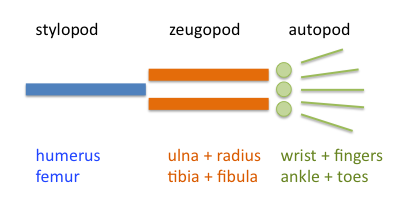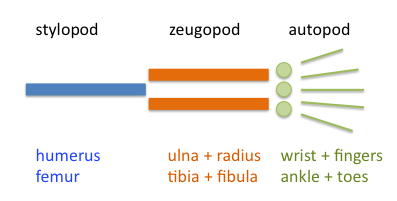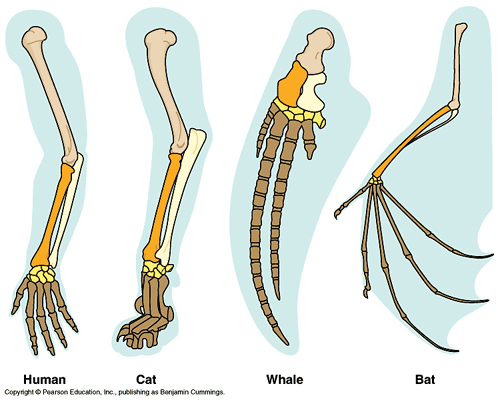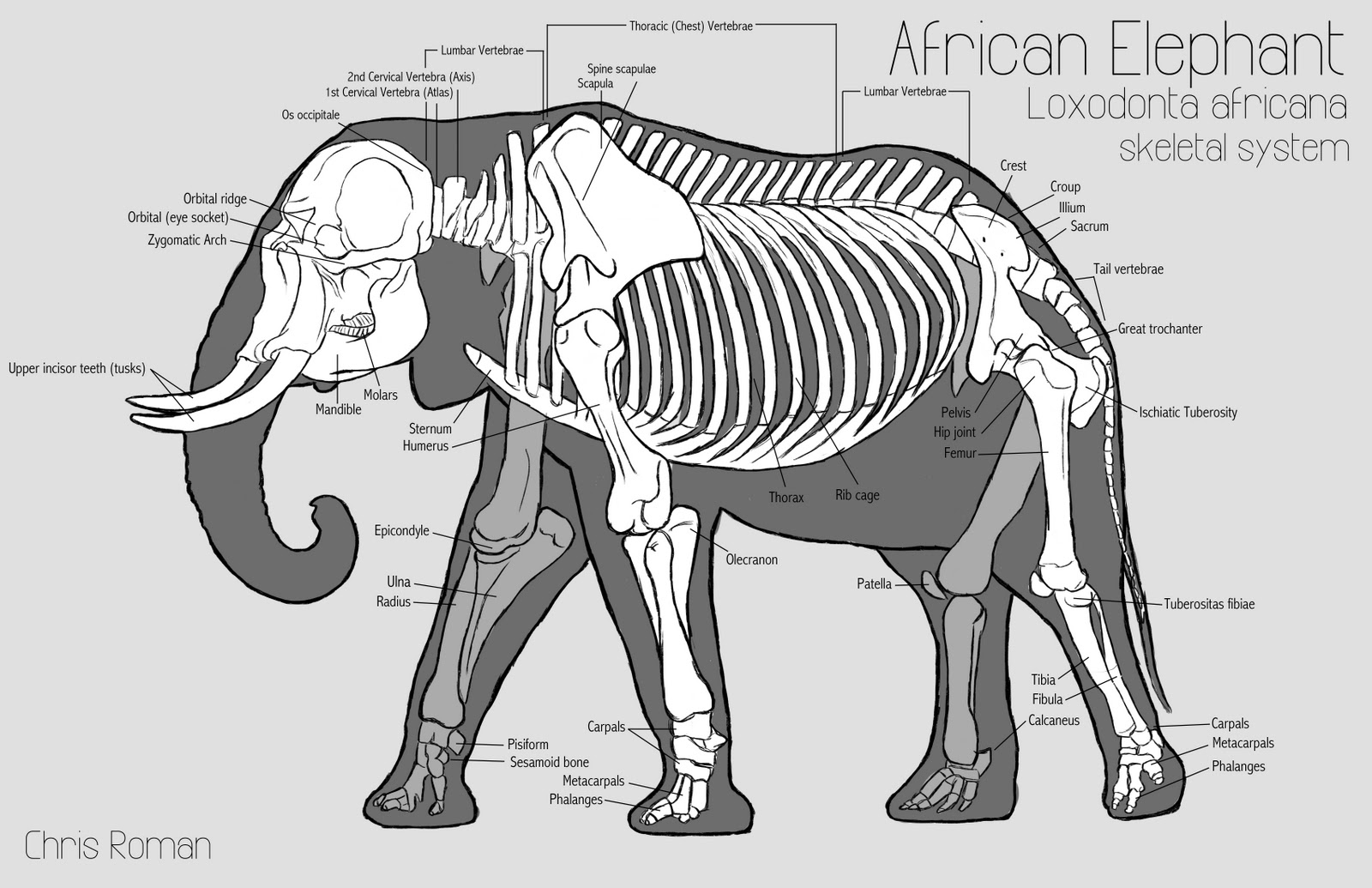Bat wings, human forearms, elephant legs, and cat forelimbs are what type of structures?
1 Answer
The answer is homologous structures .
Explanation:
All the fore limbs that you mention are made up of same sets of bones. These vertebrates are all mammals, hence evolved from a common ancestral stock. So they all inherited a basic anatomical structure which later became adapted for different habits and habitats. These are regarded as homologous structures: anatomically similar, functionally different.
The limbs in all these animals are primarily pentadactyl and the plan is as follows:

( )
)
So the forelimb in all of these animals will have same bones: from proximal to distal the bones are-
Humerus (remains attached to pectoral girdle),
Radius and Ulna (in diagram shown as orange and white bones),
Carpals (shown in yellow colour),
Metacarpals ,
Phalanges .

( )
)
- In human, the hand is used for grasping; it is associated with opposable thumb.
- The cat uses it for walking and running; a paw is there to support clawed digits.
- Forelimb in bat is modified for flying. Highly elongated metacarpals and phalanges support the skin of wing.
- Elephant's forelimb appears like a cylindrical pillar but it is made of same sets of bones.

( )
)
